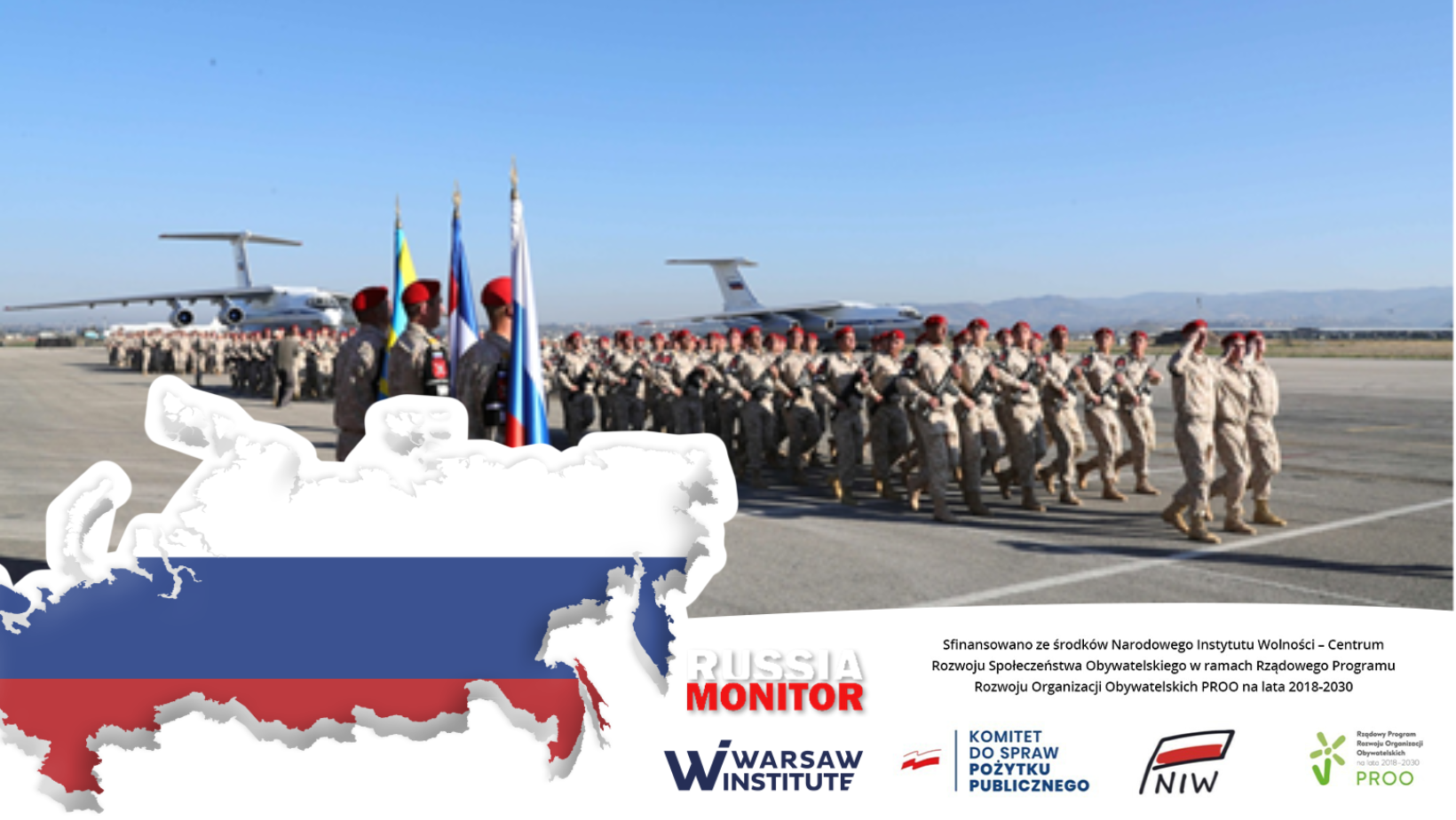
Russia Monitor is a review of the most important events related to Russian internal and external security, as well as its foreign policies.
Date: 27 October 2022 Author: Grzegorz Kuczyński
Russia’s Syrian Withdrawal Could Prompt Israeli Help For Ukraine
Israeli missiles hit targets near the Syrian capital Damascus in a rare daytime attack on October 24. Some of the missiles were shot down by the Damascus air defense. Israeli strikes usually take place under the cover of darkness. Perhaps Israel is less concerned over the Russian-backed air-defense systems in Syria as Russian forces withdrew from some positions in the country.

As Russia is struggling on the front line in Ukraine, it is little surprising that the country has shipped a battery of S-300 anti-aircraft missiles and some 1,200–1,600 troops from Syria to Ukraine. Amid the invasion of Ukraine, Russia reduced the number of its troops in Syria. Several Russian commanders had been redeployed from Syria to Ukraine, while Russia’s military leadership in Moscow has become less involved in day-to-day management of operations in Syria. What matters most is the fact that Russia has relocated its long-range S-300 missile systems from inside Syria. Consequently, Israel could feel encouraged to conduct a daring aerial campaign to strike targets in Syria or offer military assistance to Kyiv. Moscow’s military presence and Syria and Iranian drones––and ballistic missiles sometime soon––supplies could prompt a shift in Israel’s stance on the Russian-Ukrainian war. Despite many appeals from Ukrainian officials, Israel has long denied selling weapons to Ukraine amid the Russian invasion of the European country. What Yair Lapid, the Israeli prime minister, told The Jerusalem Post was particularly interesting. He expressed deep concern over Russia and Iran’s military ties in a conversation with Ukraine’s foreign minister, after Moscow allegedly used Iran-made drones to attack Ukraine. Asked what is holding Israel back from providing Ukraine with missile-defense systems, Lapid said he was balancing two considerations. “One is we are on Ukraine’s side,” he said. The other consideration “is making sure Israel’s national security interests are being protected at all times.” By saying this, he meant the situation in Syria, where Iranian forces are increasingly present. Russia has let Israeli jets bomb Iran-linked targets said to be weapons caches destined for Israel’s enemies. Israel has intensified strikes on Syrian airports to disrupt Tehran’s increasing use of aerial supply lines to deliver arms. The Israeli military has destroyed most of Iran’s military infrastructure in Syria and Iraqi arms supply routes into the war-torn country. Israel has stayed largely on the sidelines since Russia invaded Ukraine, fearing possible retaliation in Syria. As Russia is gradually leaving Syria, Israel could offer more help to Ukraine. The threat of the S-300 system to Israeli operations in Syria was a key reason that Israel has turned down Ukrainian requests for air defense systems, according to New York Times, citing a source in the U.S. administration.
Support Us
If content prepared by Warsaw Institute team is useful for you, please support our actions. Donations from private persons are necessary for the continuation of our mission.
All texts published by the Warsaw Institute Foundation may be disseminated on the condition that their origin is credited. Images may not be used without permission.















